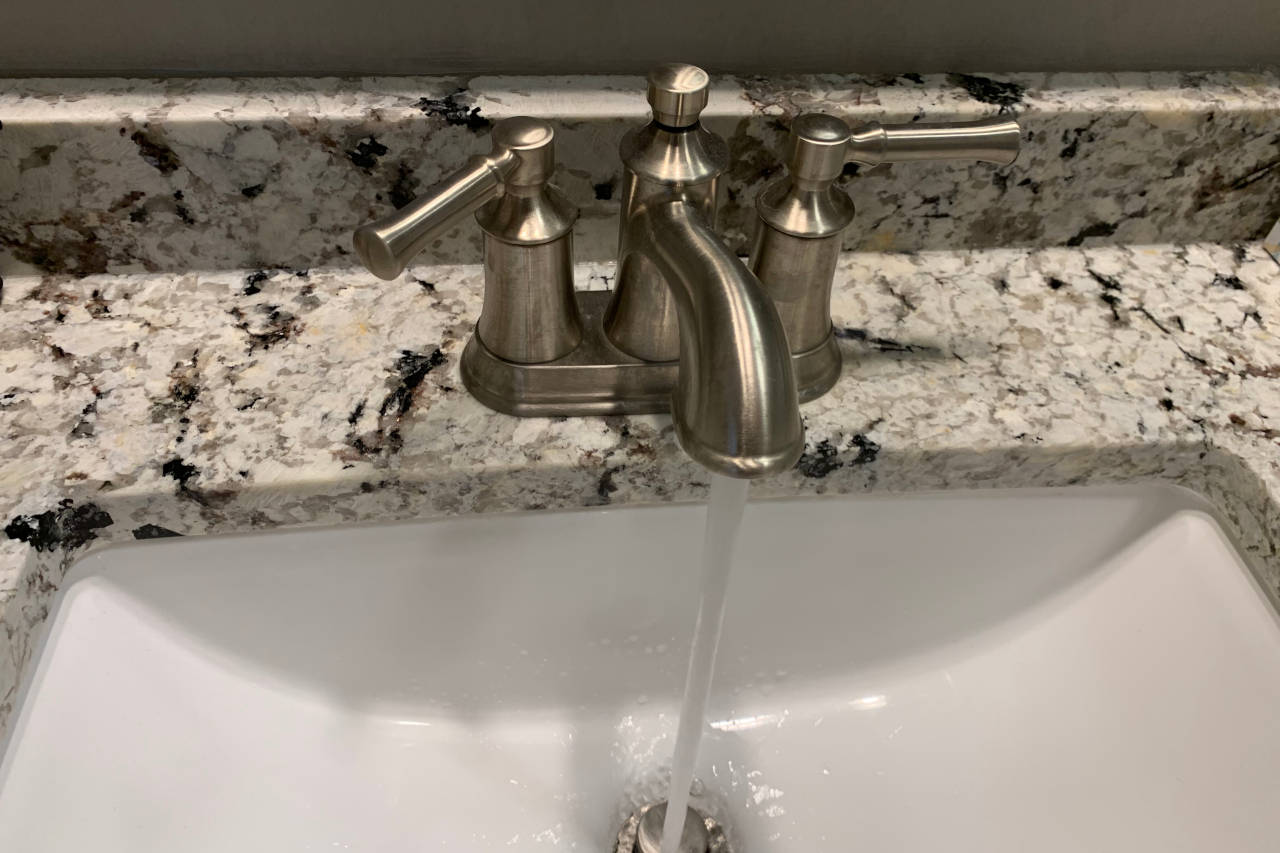Cost to Install a Water Softener – 2025 Price Guide
Installing a water softener is a great way to improve the quality of your water and get rid of hard water problems. Water softeners come in many different types and styles, and most are designed to be used to treat all the water in your home.
You might be wondering how much it costs to install a water softener. We'll cover the cost of the project in detail below.
2025 Water Softener Costs
Calculate local project costs by entering your zip code.
Custom Location
| National Average Price | $1,500 |
| Typical Price Range | $500 - $6,000 |
Get free estimates from contractors near you.
On this page:
How Much Does a Water Softener Cost?
An in-home water softener could potentially save you thousands on plumbing repairs. Chlorine and minerals added to municipal water, and those that are natural in private wells can accumulate in your pipes. The build-up on your pipe’s walls has the same effect as cholesterol in the body.
Usually, hard water has a high concentration of magnesium and calcium. Eventually, you will have no water pressure, especially on the second floor of a home.
In the meantime, you may find that you have unsightly stains on sinks and tubs, your laundry is stiff and harsh, and that soap doesn’t lather well. In addition, hard water can be tough on skin and hair.
The purpose of a water softener is to remove minerals to address these common hard-water issues. With a water softener, your silverware and glasses will come out of the dishwasher without spots. Your family will have cleaner, softer skin and silkier hair.

Installing a water softener system for a five-member home can range in cost from $500 to $6,000, although most people pay around $1,500 for a whole house system, fully installed.
The capacity of a water softener refers to the number of grains per gallon (GPG) removed.
Common Types of In-Home Water Softeners
The most common types of water softeners are salt, potassium, and magnetic. How much you spend will depend on which you choose, not only initially but over time. Some require filter replacements, while others require you to add salt or potassium.
Sodium Chloride (Salt)
Salt-based water softening systems are the most common type. It’s used in what’s known as an ion-exchange system and may come with one or two tanks, depending on your needs.
Salt is added to neutralize the minerals in your water, and you will need to add it regularly at a cost of around $10 a month in ongoing costs. The system itself may cost between $400 and $1,200, depending on whether you use a one or two-tank system.
These systems are sized by the grain, with a whole house system starting at 24,000 grains. The larger the system, the higher the costs.
These systems do need to flush regularly, and the salt may do some minor damage to landscaping if you flush directly outdoors. These systems are also not recommended for anyone on a low-salt diet, as they can add a small amount of salt to your water.
It’s not enough to taste or cause issues in most people or animals, however, and is the system most commonly installed in homes.
Potassium Chloride
A potassium water softener works identically to a salt-based water softener. However, instead of salt, it uses potassium. Potassium pellets are more expensive than salt, which can cause your system to cost you around $50 a month in ongoing costs.
Potassium systems are sometimes used by people who don’t want to or can’t have salt in their water. Keep in mind, however, that potassium-based systems are contraindicated for people with kidney problems.
Price of Sodium Chloride vs. Potassium Chloride
The price to buy and install a potassium water softener is the same as a softener that uses salt. However, the difference comes in the refills. Salt costs $5 to $10 for a forty-pound bag, and the potassium is $25 to $50 per bag.
Also, six states (California, Massachusetts, Texas, Connecticut, Michigan, and Wisconsin) prohibit or regulate the use of salt-based softeners. If you live in one of these states, check to see what regulations may be in effect in your area before purchasing a new system.
Magnetic
A magnetic system does not exchange ions but attempts to prevent the minerals from sticking to the pipes. In theory, this will prevent the build-up of minerals, but does not impact the quality of the water itself. There are no studies that show that this system works or is more effective than other types of systems.
These are a new technology that will attach to your present pipes and costs about $250 to $600. Do some research before buying, or check to see if a neighbor with the same water system likes it.
Dual Tank System
A dual tank system typically gets installed in multi-family homes or homes with large families. One tank can get cleaned while the other is being used. These systems generally cost between $1,000 and $2,200 but could cost as much as $5,000, depending on the brand. So, shop around for the best deal.
Reverse Osmosis
A reverse osmosis system is more costly at $4,000 to $11,000. They are, however, often considered the most effective. They remove all minerals from the water without the use of salt or potassium, and can also help remove impurities from the water as well.
This system forces the water through a tight filter under high pressure. It can remove things like chlorine and VOCs as well as minerals, giving you better water quality no matter what you were starting with.
This is a good system for homes with wells where the water quality itself may not be good to start.
Cost to Test Your Water
Before buying a water softener, testing your water can determine which is best or let you know if one is even necessary. You can get a water test kit from your local hardware store for $20 to $50.
Alternatively, you can have your water professionally tested for around $50 to $100 if you want to know more about what may be in it, in addition to minerals.
Professional vs. DIY Water Softener Install
If you’re comfortable with plumbing and following printed directions, and you have the time and tools, you could consider a DIY install. However, do your research, and make sure you install the right type and size for your family and water condition.
Some localities might also require a licensed plumber perform this kind of work, and might also require a permit and inspection. A permit usually costs $20 to $100 for this kind of work.
If you do choose to install it yourself, you could save around $1,000 for the installation.
If you’re not legally allowed or you’re not comfortable with the installation, consider getting several estimates from licensed plumbers for the project. They should be able to recommend the right system for your home and professionally install it.
A professional installation could cost $1,000 or more, depending on the plumbing modifications needed to add the system, but the cost is well worth it to avoid leaks and other plumbing issues in the future.
Learn more about plumbing projects and how much it costs to hire a plumber.
All pricing information on this page is based on average industry costs, and is subject to variance for project-specific materials, labor rates, and requirements.


